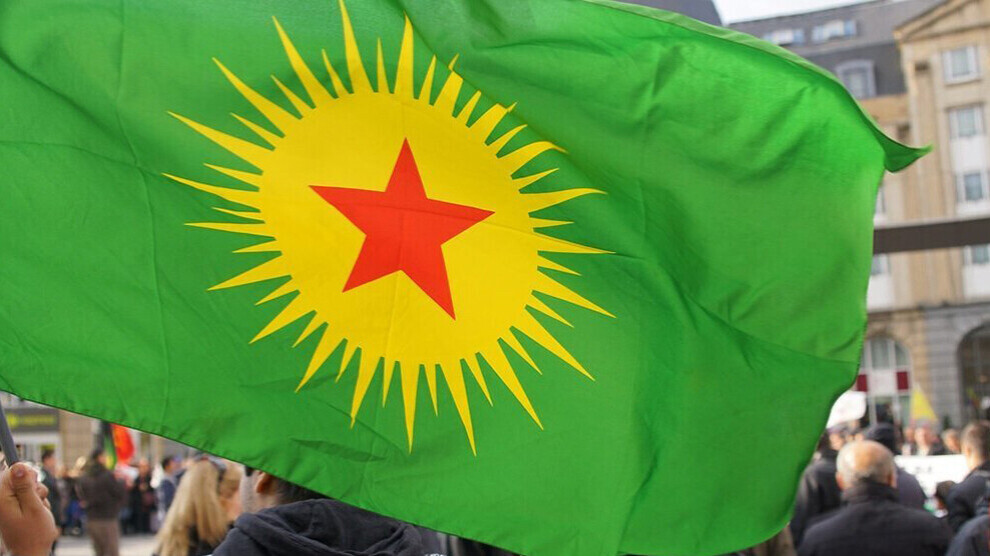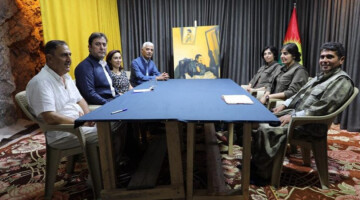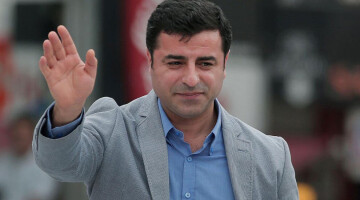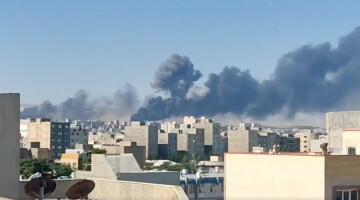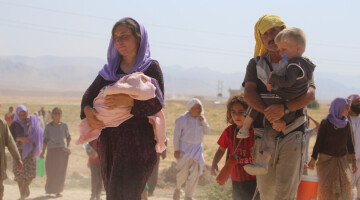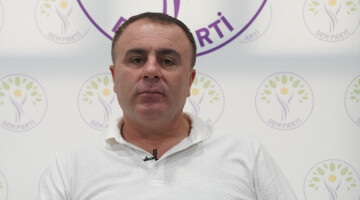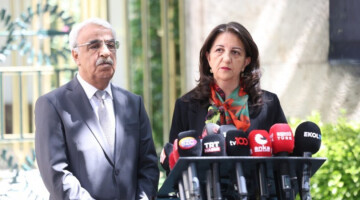The former member of parliament Michel Brandt of the German Left Party -Die Linke- was fined by the Karlsruhe Regional Court for displaying Kurdish symbols. He was ordered to pay a fine of 900 euros, a court spokesperson announced on Friday. The verdict in the appeal trial, which ended on Thursday, is related to the symbol of the Kurdistan Communities Union (KCK). It was said to be equivalent to the Kurdistan Workers' Party (PKK), which is banned in Germany.
The public prosecutor's office had accused Brandt of using symbols of the umbrella organization of the Kurdish liberation movement in social networks. The flags of the KCK and PKK were visible in the background of the photos in question, which had been taken at rallies in 2019. Brandt had appeared as a speaker and condemned Turkey's attacks on Rojava, which are contrary to international law, and German arms deliveries to Ankara.
The Left Party in Baden-Württemberg, of which Brandt is deputy state spokesperson, had previously described the proceedings as “obviously purely politically motivated”. “Solidarity with Kurdistan is not a crime; defending Rojava and solidarity with Kurdistan are necessary,” the party said.
The proceedings against Brandt have been dragging on for years. The politician appealed a penalty order by the public prosecutor's office for 14,000 euros, which had been issued in 2021 for using Kurdish symbolism online, and turned to the district court. With a partial acquittal, the fine against Brandt was reduced to 4,700 euros in 2022. Brandt then appealed against the decision. At the first hearing at the regional court in January 2023, the judge still suggested that the proceedings be dropped, but the public prosecutor's office rejected the request.
The fact that the public prosecutor's office insisted on continuing the proceedings exactly two years later and at a time when Turkey is attacking Rojava and threatening to invade again was described as “interesting” by the party in Baden-Württemberg. An activist who observed the trial criticized the proceedings as an “expression of the unconditional will to prosecute the Kurdish movement by the German judiciary.”

